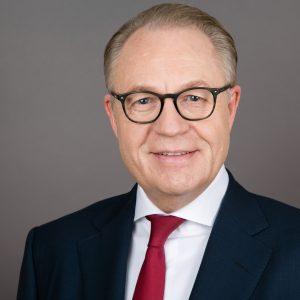In an interview, Guest Prof. Robert A. Sedlák was asked about “The role of decisions in the Systems Theory”. This interview highlights the scientific approach of Mr. Sedlák and his successful procedure to enable sustainable changes in organizations.
Interview with guest prof. Robert a. Sedlák
The role of decisions in the systems theory
What role does the topic of decisions play in the systems theory?
In Systems Theory, we assume that organizations are not a thing, but complex social systems that are created and kept alive through communication. Communication in this sense is an event that takes place and then stops again. Without follow-up communication a social system would cease to exist. Now we assume that the decision is the most important communicative event of an organization.
When are decisions necessary?
When there is a difference between knowing and not knowing. Decisions can only be made if there are various alternatives. By making a decision, I am deciding on a presumed future. Here, we pretend that the future is certain. After the decision, we can continue until there is something else to decide.
why does the systems theory have a rather critical view of the conviction: once the management has decided, everything should work out?
After each decision, subsequent decisions must be made. We can only speak of an effective decision if subsequent decisions are taken in terms of the initial decision. Now we know that many subsequent decisions in organizations are not made in the sense of management decisions – and thus the actual intention is not pursued. This presents management with a particular challenge.
From a systems theory perspective, does it make a difference whether decisions are made by individuals (managers) or by teams?
First of all, it depends on whether subsequent decisions are made in accordance with the management decision – only then would we speak of a decision in terms of the Systems Theory. The complexity of today’s issues often overwhelms individuals. For this reason, managers are very well advised to involve key players and experts in the opinion-forming process. Then, they can make smart decisions.
Why do organizations often act in exactly the opposite way to the actually agreed upon decision?
If decisions are not understood, it often leads to follow-up decisions that may go in a different direction. In this case, one should not underestimate the intelligence of the system. Moreover, every decision is assigned a meaning – does that make sense or is it nonsense? Then it has happened…
Furthermore, I would like to remind you that organizations are self-organizing systems. This has something to do with stubbornness and unpredictability. Managers are well advised to take this self-organizing logic of organizations into account in decision-making processes and to carefully observe the associated effects.
From the perspective of the systems theory, what role do management and executives have to play in decision-making?
First of all, I would like to state that every manager is a part of the system and every steering impulse also has an effect on the management itself. Organizations influence how the management directs and vice versa. This means that the way in which decision-making processes are designed has a significant influence on the quality of the decision and, of course, on the processes of subsequent decisions and thus also on the quality of the decisions that are then reached. This creates or prevents opportunities for managers.
Is it possible to make decisions in such a complex structure as an organization, which later makes a difference for the organization?
We can assume so. When management decides to close a site, then it makes a difference compared to today. As I said before: you can make a lot of decisions. The question is whether the closure of the site will actually take place. In my consulting practice, I have often observed that management started with a tiger and then ended with a bedside rug. This is then an indication that the decision making process has not gone well.
What recommendations does the systems theory give so that smart decisions can be made in an organization?
We speak of decision premises that are implicitly or explicitly present in organizations and on which management can exert influence. These include communication structures, programs (if … then or in order to …) and individuals. This is how subsequent decisions are determined. Managers are well advised to take a look at these decision premises and examine whether they are still adequate (2nd order observation). In addition, the process and platforms, how and where decisions are made, play an important role. Next, managers should take a self-reflective look at themselves and the types of decisions they represent. We are well advised to take the latest findings from brain research seriously and to use both the mind and the emotional memory of experience in a balanced way when making decisions.
Robert A. Sedlák is Senior Executive Consultant, Chairman and CEO at S&P Consulting International Consulting. Since 1987, he has been working as an independent management consultant for DAX-listed companies as well as for medium-sized businesses. One of his consulting focuses is the topic of “Foresighted Self-Renewal”. This method, developed with leading organizational scientists of the Newer Systems Theory, enables organizations to recognize signals for change early on and to use them specifically for a self-renewal process. In addition, it deals intensively with the question of how organizational and personal learning processes can be optimally interlinked within the framework of change processes.
Since 2013, Robert A. Sedlák has been a guest professor at the East China Normal University (ECNU) Shanghai and, for over 25 years, has been a member of the Bundesverband Deutscher Unternehmensberater BDU e.V. (Federal Association of German Management Consultants). He is also a CMC certified management consultant.

